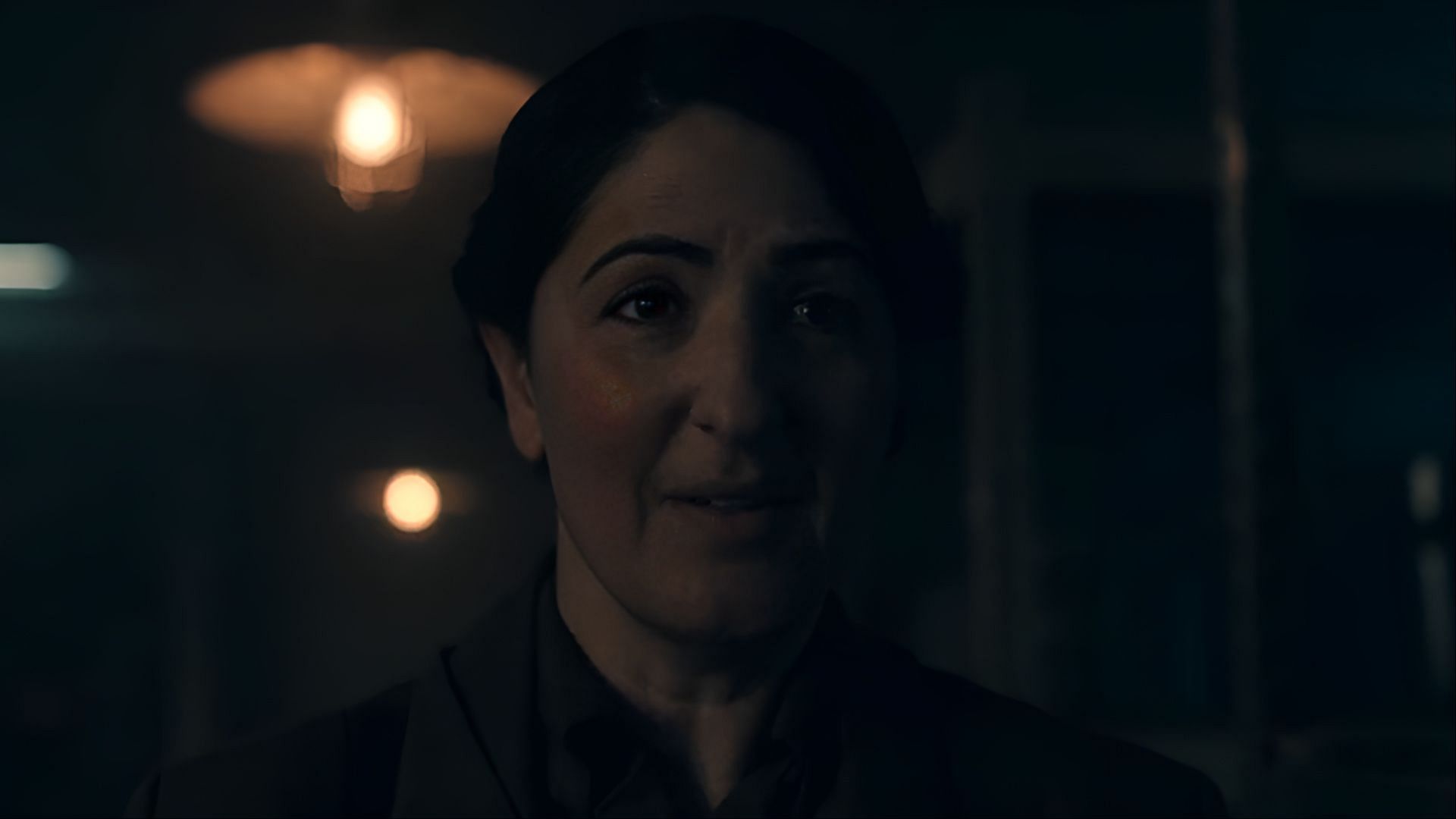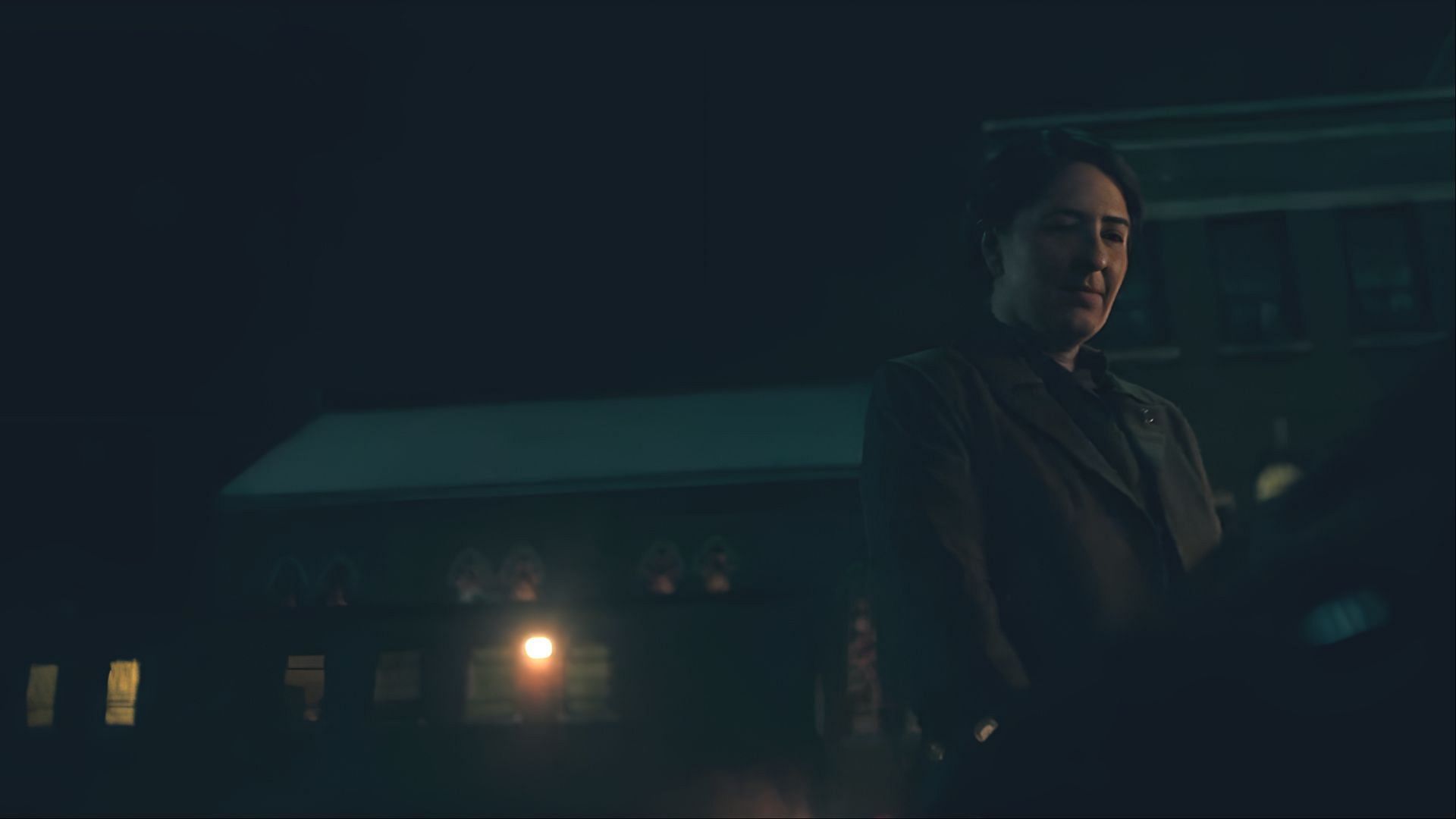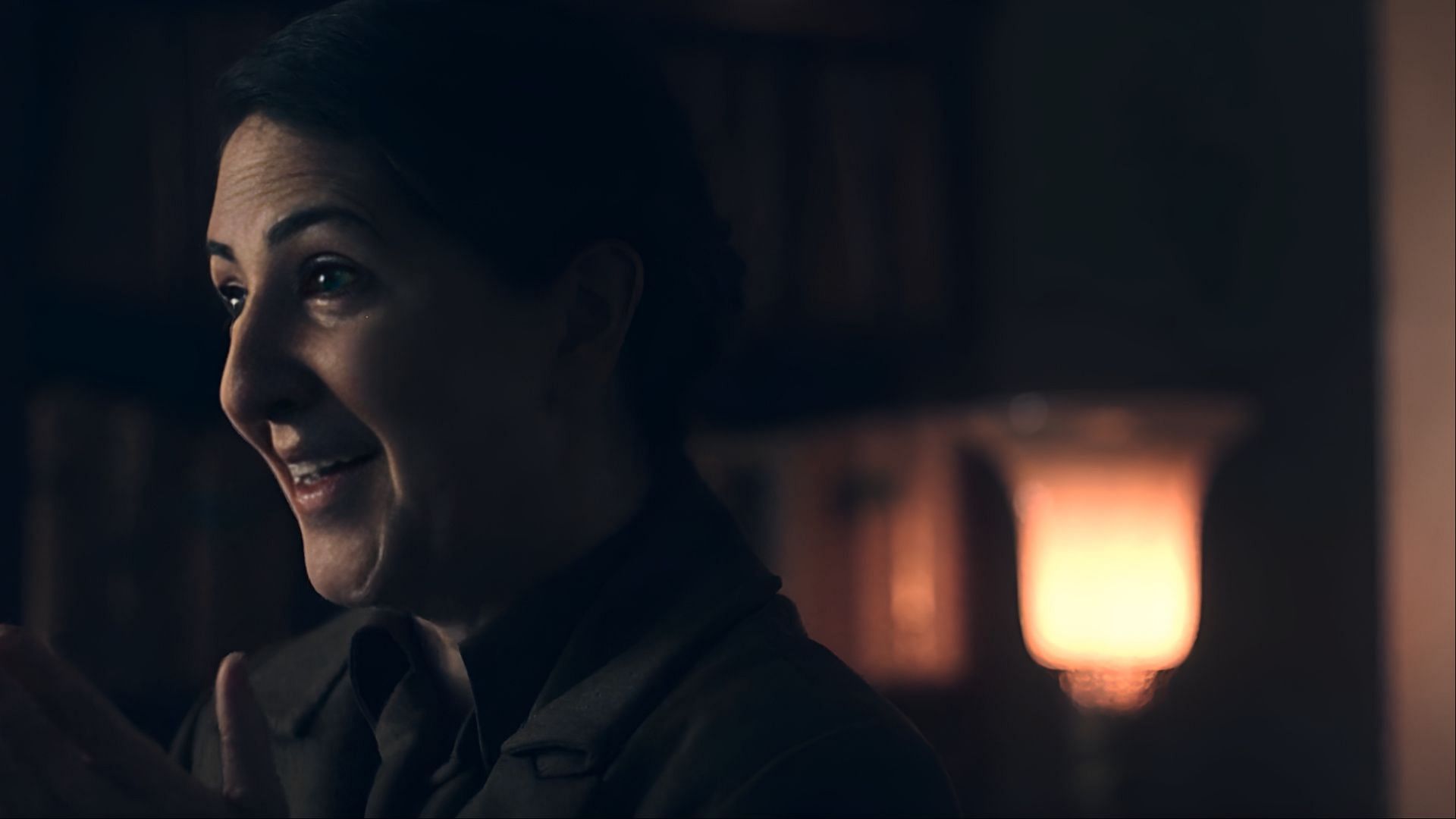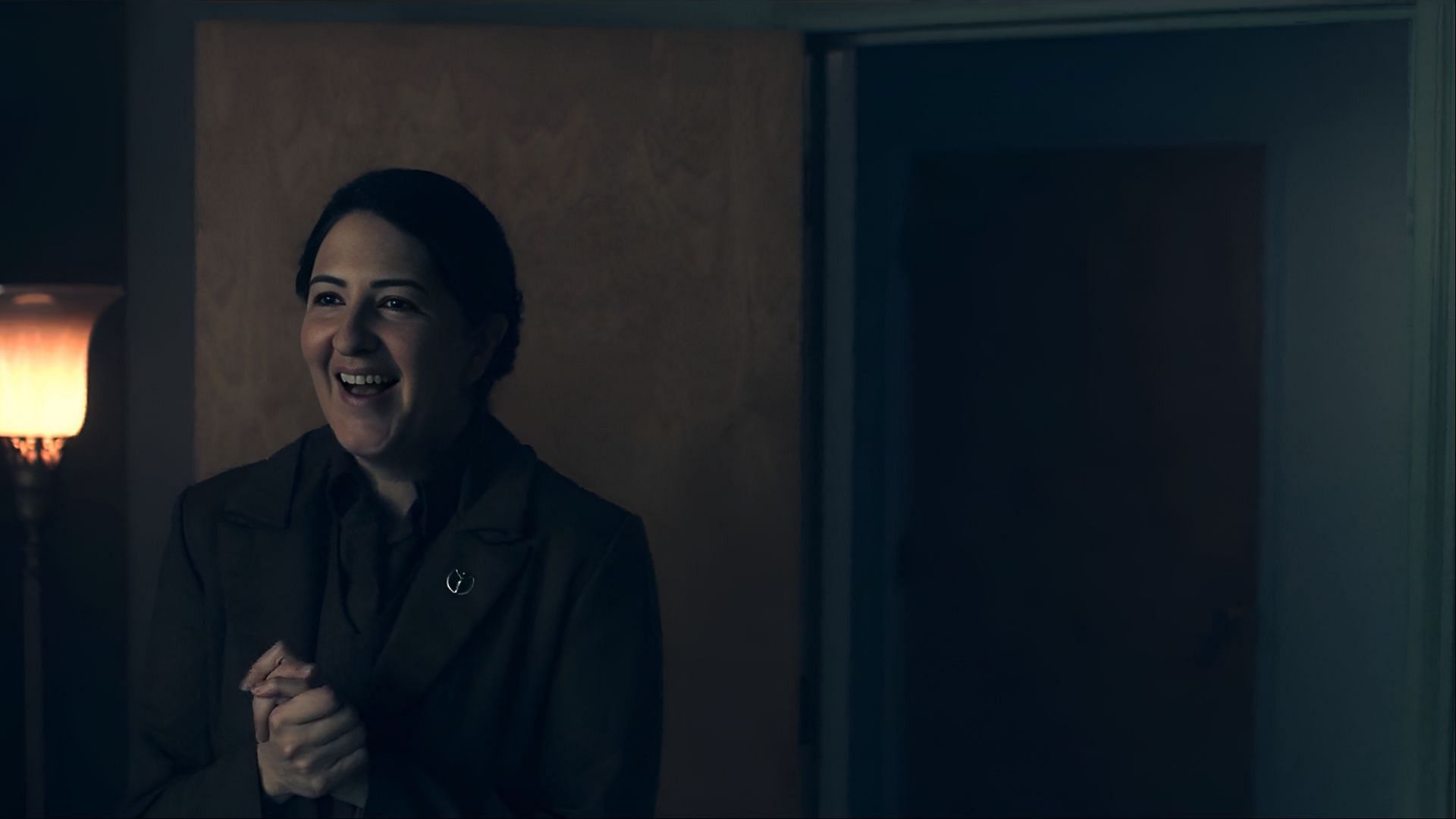I feel Aunt Phoebe's fight brings a different energy to the storyline of the dystopian drama, The Handmaid's Tale

The Handmaid's Tale has long been known for its brutal portrayal of a patriarchal dystopia, one that strips women of their rights, their voices, and their agency. From the moment it premiered, the series carved a space in pop culture as a chilling reflection of real-world gender politics. Yet within this carefully constructed world of control, resistance, and obedience, the introduction of Aunt Phoebe brings an entirely new and unpredictable energy.
From her very first appearance, Aunt Phoebe shifts the dynamic by not merely acting as another cog in Gilead's machinery, but as someone whose internal contradictions make her both a part of the problem and a surprising source of potential disruption. Her presence complicates the viewers' understanding of what it means to be an enforcer of Gilead’s rules.
Unlike the more stoic or fully indoctrinated Aunts, Aunt Phoebe radiates something volatile. Her version of control is fueled by something more personal, more conflicted, and more ambitious. It’s this very complexity that makes her role so essential. Aunt Phoebe doesn’t just fit into The Handmaid's Tale: she agitates it, revealing how even those who hold the whip can be dangerously close to rebellion.
Disclaimer: This article is based on the writer's opinions.
The Handmaid's Tale and the inner rebellion of Aunt Phoebe
Aunt Phoebe disrupts the narrative structure of The Handmaid's Tale by offering a fresh portrayal of internal dissent. While Aunts in the past have mostly embodied the chilling face of state-sanctioned control, Phoebe is different. She operates within the rules, but constantly tests their limits.
Her need to assert power not just over others but also over her own circumstances creates a fascinating divergence from the formulaic behavior expected of Gilead's enforcers. In doing so, she introduces fractures into what is supposed to be a monolithic regime. Her defiance is rarely overt, but it's ever-present, simmering just beneath the surface.
This complexity isn’t just narrative flair. It reflects the deeper, more insidious ways in which power can both corrupt and be resisted. Aunt Phoebe’s rebellion may not look like June’s, but it is rebellion all the same. By having her own ambitions and doubts, she challenges the system from within, subtly shifting what it means to be complicit.
Disruption and control: A new tension in The Handmaid's Tale

Aunt Phoebe’s controlling nature adds an edge that diverges from the cold discipline we’ve seen before. Her tactics are more chaotic, emotional, and impulsive. She doesn’t just enforce the laws of Gilead: she manipulates them to serve her evolving sense of purpose. This behavior not only sets her apart from other Aunts but also sows seeds of instability among Handmaids, Guardians, and even fellow enforcers.
Her actions introduce a different kind of fear, the unpredictability of someone who isn’t playing by a fixed script. Viewers are constantly left questioning her next move, which elevates the tension of the series. Aunt Phoebe’s presence reminds us that power doesn’t always come from order; it can also come from discord.
The Handmaid's Tale and the morality of authority

One of the most compelling aspects of Aunt Phoebe’s character is her moral ambiguity. In The Handmaid's Tale, characters are often split cleanly into heroes or villains. Aunt Phoebe resists such binary definitions. She can be cruel, calculating, and merciless, yet she also reveals glimmers of introspection. Perhaps she believes in the system’s ideology, or perhaps she uses it as a mask for personal survival.
In season 6, episode 7, this moral complexity takes on a new dimension when it’s revealed that Aunt Phoebe is not simply another loyal enforcer under Aunt Lydia's command. Instead, she secretly works for Mayday, helping June and Moira plan an attack targeting Serena Joy and Commander Wharton’s wedding. Though Aunt Lydia barks orders at her, Phoebe’s allegiance lies elsewhere, making her role doubly dangerous.
Her true motives remain unclear. It’s not known whether Phoebe was always a Mayday agent or if she was once a genuine Aunt turned by the cause. Either way, her presence inside Gilead’s machinery is now instrumental to the resistance’s final strategy. She is a wildcard with access, authority, and a mission.
A catalyst for change in The Handmaid's Tale

Even when she seems to be upholding the law, Aunt Phoebe inadvertently becomes a catalyst for change. Her actions ripple across the ranks, sometimes creating unintended consequences that weaken Gilead’s foundations. By challenging other Aunts or intimidating Handmaids into erratic responses, she throws off the balance that the regime depends on.
Episode 7 underscores this, as Phoebe helps coordinate the Handmaids' roles in the wedding attack while also attempting to distract Aunt Lydia from interfering. Her quiet subversion becomes essential to executing the plan, and her involvement turns her from a background character into a critical figure in the series’ endgame.
It is especially striking how central Phoebe has become, despite being a new addition in the final episodes. Her importance mirrors other late-stage characters like Commander Bell, played by Timothy Simons, who also brings unexpected dimensions to the story. Notably, both actors, Simons and D’Arcy Carden, come from sitcom backgrounds, making their roles in The Handmaid’s Tale particularly jarring and impactful.
Aunt Phoebe's complicated legacy in The Handmaid's Tale

In a series where power is rigid and roles are predefined, Aunt Phoebe blurs the lines. She doesn’t fight in the way we’re used to seeing; there are no grand speeches or obvious acts of rebellion. Yet her presence is deeply unsettling, in the best way possible. She destabilizes Gilead from within, not with banners and bullets, but with uncertainty, ambition, and contradiction.
Ultimately, Aunt Phoebe enhances The Handmaid's Tale by challenging the audience to reconsider what resistance looks like. She brings a necessary energy to the narrative, an erratic, fiery current that disrupts the status quo. And in a world like Gilead, disruption is the first step toward freedom.




